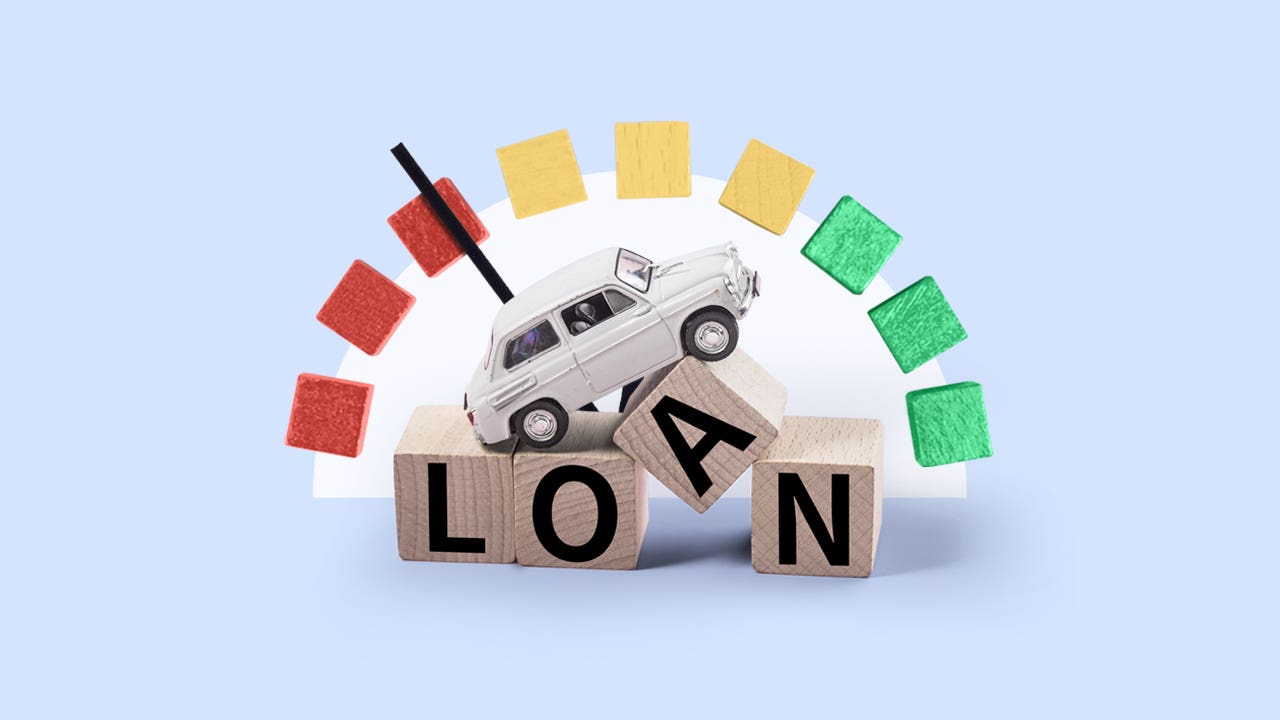How to get a car loan with bad credit




Key takeaways
- Bad credit auto loans are offered by banks, credit unions, online lenders and dealerships.
- Shop around to find the best deal on an auto loan for your budget and credit profile.
- If approved, an auto loan can help improve your credit — provided you keep up with the loan and make on-time payments.
Getting approved for a car loan from a traditional lender is challenging when you have a low credit score. You will face higher rates and eligibility requirements that can make it difficult to qualify, but that doesn’t mean it’s impossible.
Although it will take more work to find a competitive auto loan, you don’t have to settle for a high-cost loan from a buy-here, pay-here dealer. With a little legwork, you can find the best bad credit car loans for your financial situation.
How to buy a car with bad credit
Yes, it’s tougher than with better credit. But the good news is that research, saving for a down payment and getting preapproved may help you qualify for a competitive auto loan.
1. Check your credit score
Before you shop for financing, check your credit score. According to the FICO automotive credit scoring system, which ranges from 250 to 900, scores below 600 are considered subprime. If you fall into this category, it can be challenging to secure an auto loan with competitive terms, and you could be denied if your score is too low.
Check your credit score three to six months ahead of applying to give yourself time to shop around for lenders. That way, you can start searching for lenders that offer the best rates for people in your credit range. Repairing your credit score before you apply will also put you in a more favorable position with lenders.
What is the average auto loan rate for bad credit?
| Credit score range | New car | Used car |
|---|---|---|
| Super prime (781 to 850) | 4.88% | 7.43% |
| Prime (661 to 780) | 6.51% | 9.65% |
| Near prime (601 to 660) | 9.77% | 14.11% |
| Subprime (501 to 600) | 13.34% | 19.00% |
| Deep subprime (350 to 500) | 15.85% | 21.60% |
| Source: Experian State of the Automotive Market, Q3 2025 |
2. Save for a down payment
Saving up for a down payment will help you finance less, and a smaller principal will reduce your monthly auto loan payment. A down payment can also offset higher interest rates and lower your loan-to-value ratio, which can help you qualify for better terms. And, if you have a lower credit score, making a down payment on a car may increase your chances of being approved for an auto loan.
The general rule of thumb is to make a down payment of at least 20%. If you can’t afford the full 20% and need a vehicle immediately, put down what you can comfortably pay — but remember, the more you can put down at the start of your loan, the less your overall costs will be.
3. Prequalify with multiple lenders
Prequalification lets you check your eligibility and loan terms before you apply. It can save time and avoid unnecessary hard credit checks, which can briefly lower your credit score.
Once you prequalify with a few lenders, compare rates and total costs to find the best deal. You can then submit documentation and get preapproved with your top picks. A preapproval application will result in a hard credit check, but a preapproved auto loan holds more weight when negotiating at the dealership because it represents the lender’s commitment to extend an auto loan to you.
Prequalification allows you to preview your rate without a hard credit check, but your actual loan applications will involve hard checks. However, if you submit multiple applications within a 14-day period, your applications will likely only count as one inquiry.
Where to find a bad credit auto loan
- Banks and credit unions
-
If you already have a relationship with a bank or credit union, start here. It may help you save money — but acceptance criteria are stricter.
- Online lenders
-
Many online lenders offer prequalification so you can see what terms you might be eligible for and quickly compare options.
- Car dealerships
-
You can finance through a dealership if you cannot secure a loan from another lender. However, you may face high interest rates.
- Buy-here, pay-here dealerships
-
Buy-here, pay-here dealerships can be useful if you can’t find another option, but be cautious of high rates and predatory practices.
4. Shop loan terms, not monthly payments
Lower monthly payments look good on paper and are usually used to entice buyers. However, since they come with longer terms, they may lead to you paying more for your car over the life of the loan.
Typically, car loans for bad credit have higher interest rates and more fees. Double-digit rates and an extended term mean you may pay thousands more in interest than the car’s full value by the end of your loan term.
Before you apply for a loan, know the monthly payment you can afford and what annual percentage rate (APR) you can expect for your credit score. The most common guidance is to keep your car costs — including your auto loan, insurance, maintenance and gas — between 10% and 15% of your take-home pay.
When you start shopping, look for the most favorable terms — usually the lowest APR over the shortest period. But make sure the monthly payment works for your budget. This is where prequalification and preapproval come in handy.
Seven-year auto loan terms have become popular, but borrow with caution. Repaying a loan for a depreciating asset over such a long time means paying even more interest to your lender. Use an auto loan calculator to understand these costs, and opt for the shortest term allowed by your budget.
5. Consider a cosigner
Consider asking a trusted friend or family member to be a cosigner on your car loan. Ideally, this individual should have a steady source of income, a strong credit score and an exceptional credit history.
Cosigners reduce lenders’ risk because the cosigner is equally responsible for the loan. Because of this, a cosigner may result in a lower interest rate. However, the cosigner’s credit score can suffer if the loan becomes delinquent, even if they don’t own the vehicle. In addition to this risk, a cosigner may find that it is more difficult to borrow money to meet their own financial needs.
Even if they don’t cosign with you, bringing someone you trust to the negotiating table can help inspire confidence. Confidence, combined with knowledge, can lead to more favorable loan terms.
6. Avoid financing add-ons
Never agree to a loan contingent on purchasing any add-ons, such as extended warranties, after-market services or gap insurance. Be aware of these add-ons, especially if you apply at a buy-here, pay-here dealership. In most cases, they are wrapped up in the loan — meaning you pay interest on services and products you may never use.
Rolling these costs into your loan means you may borrow more than the vehicle is worth, putting you at greater risk of being upside-down on your loan. If you want one of these add-ons, you can always purchase them from a third party once you’ve bought your car.
7. Be sure the terms are final
If you finance through a dealership, always confirm the terms are final before signing. A dealer may offer you conditional approval so you can drive off the lot, but since the terms of your loan aren’t set, you may face higher monthly payments than you initially agreed to.
Some shady dealers will entice car buyers with low advertised rates but raise rates after the buyer signs a contract. This deceptive practice is called yo-yo financing. While it may seem similar to conditional approval, this practice is illegal.
What to do if you can’t get approved with bad credit
Delay your car purchase
Waiting to buy a car will give you time to pay down existing debt and improve your payment history, both of which will raise your credit score. It will also give you time to save for a bigger down payment, increasing your chance of approval while also reducing the amount you will need to borrow.
Buy a car privately
It’s possible to buy a car from an individual for cash, often for much less than you would spend at a dealership. You may be able to find cars for private sale through your local newspaper, classifieds or online marketplaces. Since you won’t be financing your purchase, your credit score and debt-to-income ratio won’t matter.
Of course, vehicles purchased privately usually do not come with warranties, guarantees or legal protections you would expect from a dealership. Your choices will also be more limited, and you must be prepared to pay the full cost upfront.
Refinance your loan
In some cases, your best bet is to buy a car with a high-rate loan with the intent of refinancing your auto loan. You can apply to refinance as soon as the car’s title is transferred to your name, but waiting about six months is best so you can establish a strong payment history and improve your credit. That way, you’re more likely to qualify for an improved refinance rate.
Bottom line
Comparing lenders is the best way to check auto loan rates and find the most competitive deal for your financial situation. You may also want to consider an alternative route, like postponing your purchase until your credit score improves or using a personal loan, perhaps with a creditworthy co-borrower or cosigner.
If you find a car loan that’s right for you, make timely payments to help boost your credit score. After your credit score improves, consider refinancing with a different lender to secure better terms.
Frequently asked questions
Why we ask for feedback Your feedback helps us improve our content and services. It takes less than a minute to complete.
Your responses are anonymous and will only be used for improving our website.
You may also like

What to know about auto loan debt

How to get a personal loan with bad credit

6 steps to get the best auto loan rates

